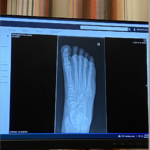Teeth grinding, also known as bruxism, is a common condition that affects millions of people—often without them even realizing it. Many individuals grind or clench their teeth while sleeping, leading to a host of dental and health problems over time. If you’ve ever woken up with jaw pain, headaches, or noticed unusual wear on your teeth, you might be experiencing night-time bruxism.
To protect patients from the long-term effects of grinding, dentists frequently recommend night guards. But what exactly do these guards do, and why are they so important? Here’s what you need to know.
Understanding Teeth Grinding
Teeth grinding can be caused by various factors, including stress, anxiety, sleep disorders, misaligned teeth, or even lifestyle habits such as excessive caffeine or alcohol intake. While occasional grinding may not be a serious concern, chronic bruxism can lead to:
- Worn-down enamel
- Tooth fractures or chips
- Increased tooth sensitivity
- Jaw disorders like TMJ (temporomandibular joint dysfunction)
- Facial pain or headaches
- Interrupted sleep for you or your partner
Since most grinding occurs at night, many people are unaware they’re even doing it—until their dentist points out the damage.
What Is a Night Guard?
A night guard, also called an occlusal guard or dental splint, is a custom-made appliance worn over your teeth while you sleep. It creates a protective barrier between the upper and lower teeth, preventing direct contact and reducing the force of grinding or clenching.
Night guards are typically made from durable plastic or acrylic materials and can be soft, hard, or dual-layered depending on your specific needs and level of bruxism.
Why Dentists Recommend Night Guards
1. Protect Tooth Structure
One of the main reasons dentists suggest night guards is to prevent damage to the teeth. Continuous grinding wears down the enamel—the hard outer layer that protects your teeth from decay and sensitivity. Once enamel is lost, it doesn’t grow back. Night guards absorb the pressure and keep your teeth from wearing down or cracking.
2. Reduce Jaw Pain and Tension
Bruxism often causes sore jaws, facial discomfort, and tension headaches due to the constant stress placed on the jaw muscles. A night guard helps to evenly distribute bite forces and relieve muscle tension, giving your jaw a chance to relax and recover overnight.
3. Prevent TMJ Disorders
The TMJ is the joint that connects your jaw to your skull, and it’s particularly sensitive to pressure from grinding. Night guards reduce strain on the joint, potentially preventing or alleviating TMJ-related symptoms such as clicking, popping, pain, or even jaw locking.
4. Improve Sleep Quality
Even if you’re not consciously aware of your grinding, your body is working hard during the night. This can disrupt restful sleep and lead to daytime fatigue. By using a night guard, your muscles stay more relaxed, and your sleep cycles may improve, leaving you more refreshed in the morning.
5. Save Money on Future Dental Work
Bruxism-related damage can lead to the need for costly dental procedures such as crowns, veneers, root canals, or even tooth replacement. Night guards are a relatively small investment that can prevent the need for extensive restorative dentistry in the future.
Over-the-Counter vs. Custom Night Guards
While drugstores sell generic night guards, dentists typically recommend custom-fitted guards for best results. Here’s why:
- Fit and Comfort: Custom guards are molded to your unique bite, making them more comfortable to wear and less likely to interfere with your sleep.
- Durability: Professionally made guards are constructed from higher-quality materials and tend to last longer than store-bought versions.
- Effectiveness: A custom fit ensures better protection, especially for severe grinders or those with specific alignment issues.
Your dentist will take impressions of your teeth and send them to a dental lab, where your guard is crafted to precise specifications.
How to Care for Your Night Guard
To get the most out of your night guard and ensure it stays hygienic, follow these care tips:
- Rinse it with water after each use.
- Clean it gently with a toothbrush and mild soap (not toothpaste).
- Store it in a ventilated case when not in use.
- Avoid exposing it to extreme heat or sunlight.
- Bring it to your dental checkups for evaluation.
When to See a Dentist
If you suspect you’re grinding your teeth—or if you experience unexplained jaw pain, headaches, or worn teeth—it’s time to schedule a dental visit. Your dentist can evaluate your symptoms, check for signs of bruxism, and determine if a night guard is right for you.
Early intervention can make a significant difference in preventing permanent damage and improving your overall quality of life.
Teeth grinding might seem harmless at first, but it can lead to serious dental and health issues if left untreated. That’s why dentists recommend night guards as an effective and simple solution to protect your smile while you sleep. A custom night guard not only prevents damage but also reduces discomfort, improves sleep, and saves you from costly dental procedures down the line.
If you suspect you’re grinding your teeth at night, don’t wait. Talk to your dentist about getting fitted for a night guard—and give your teeth the protection they deserve.






